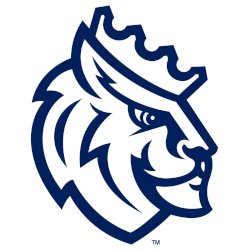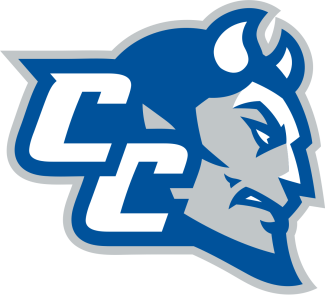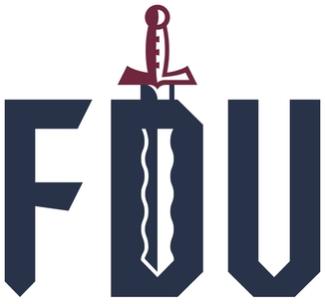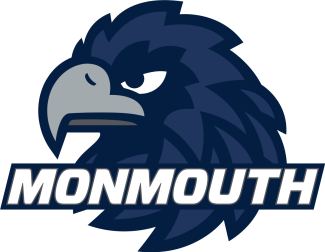THE SHERWOOD LEGACY
Sherwood was on the verge of marriage after ending his tenure with the Jets, and he began coaching lacrosse back home in Hempstead.
From 1979-81, Sherwood balanced being an assistant varsity coach and head junior varsity coach at his alma mater with his part-time job as an academic counselor at nearby C.W. Post (now Long Island University). Sherwood switched careers in 1981, working for the Seagram’s Corporation on Long Island. The corporate grind made him miss coaching, though.
Sherwood sought to become a teacher. He was hired at an elementary school in Brooklyn, and upon receiving his certification in 1986, he was hired in Hempstead Public Schools as a teacher and head coach.
His predecessor, Alan Hodish, left coaching to pursue law, which led to Sherwood’s promotion as the boys’ lacrosse head coach in 1986.
“Hempstead needed an alumnus like me to work with our Black kids and help them through the avenues of education,” Sherwood said.
“Hodish had a dynamite team in 1983 who could’ve won a championship. That was one of the most competitive teams in Hempstead’s history.”
A young Clifford Smith Jr. (aka Method Man of Wu-Tang Clan fame) would play lacrosse for Sherwood in 1986. Method Man also played youth lacrosse under Hodish’s leadership. Method Man went onto partner with the Premier Lacrosse League to release a lacrosse anthem called “BOOM,” as well as an exclusive merchandise line.
Sherwood was diagnosed with multiple sclerosis in 1988, prompting a sudden change of plans. When his vision was compromised, he stepped down as head coach and became the assistant coach in the middle school from 1989-92.
“Coaching at the middle school level was less stressful for me at the time,” Sherwood said.
Fred Opie surprisingly stepped in to replace Sherwood in 1989.
“I was very proud of him that he got the job because it was another Black coach with tremendous experience to take over the position,” Sherwood said.
Opie’s short stint ended in 1990, when he accepted a job at Gettysburg and served as the Bullets’ graduate assistant and defensive coordinator until 1992.
Hempstead fell into dismal conditions in the mid-1990s and hasn’t experienced a winning season since the 1980s.
Sherwood ended his coaching career altogether once his oldest son, Charles “Tre” Sherwood III, started playing high school basketball, football and lacrosse at nearby Baldwin High School. He dedicated his time to developing both of his sons’ lacrosse skills.
“He was always the benchmark for me,” Tre Sherwood said. “Growing up, I saw him be deeply ingrained in the community and an extension as other people’s fathers when many of his players lacked father figures.”
While in college, Tre played midfield for two NJCAA semifinalist squads at Nassau Community College in 2003-04. Following his JUCO career, he started at attack at Western Connecticut State University. During that time period, there were only a handful of Black attackmen in the country.
Tre Sherwood was impacted immensely by his father’s guidance. He continues his father’s mission of helping Black youth, having been a high school athletic director and coach in the Charlotte area. Tre Sherwood also serves as the co-founder and Director of PS8 Basketball.
Both of Chuck Sherwood’s sons took his messages to heart.
“As a kid, you want to be just like your father, and seeing his pictures helped me envision myself in the future before I took lacrosse seriously,” Devon Sherwood said.
Devon Sherwood followed in his father’s footsteps as a Duke goalie from 2006-10 while earning ACC Academic Honor Roll honors in 2010. He finished his collegiate career with a .555 save percentage and a 7.78 goals against average.
His father produced 583 saves and a .630 save percentage over 1655 minutes played.
Chuck and Devon Sherwood are the first Black father-son duo to play and graduate from Duke.
“A father and son who played at the same school is really special,” Danowski said. “The Sherwoods are very humble people and great role models for that next level of Black athletes who would consider Duke because of their legacy.”
A humble lacrosse pioneer, Sherwood is a storyteller. He details his life story as if he’s putting the listener in the moment. Years later, people will continue to tell his story to young Black lacrosse players looking to break into this great game.
“Funny thing is that I wasn’t aware of the barriers I broke when I played,” Sherwood said.
Those barriers he broke are certainly clear now as more Black players follow the trail he blazed.
“His legacy is important,” Montgomery said. “We’re fortunate enough to follow in his footsteps.”



























































